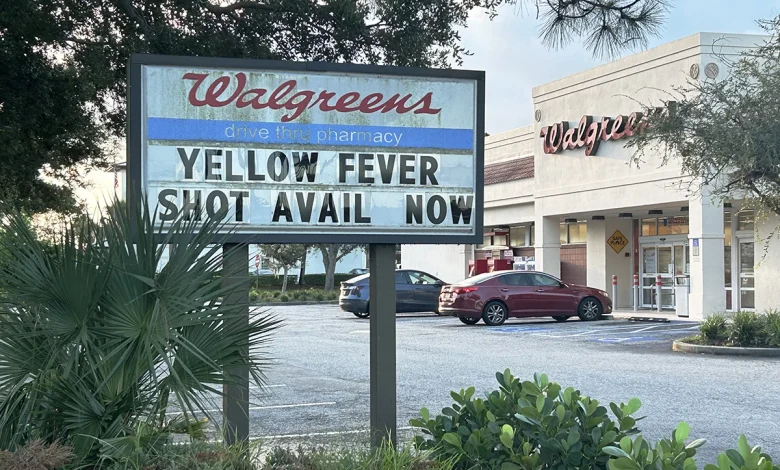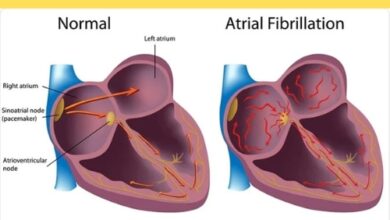Wear your bug spray, health officials warn. Five different mosquito-borne diseases have infected Floridians

With reports of five distinct mosquito-borne diseases reported in Florida, there is currently a higher than usual chance of contracting an infection from a mosquito bite.
Experts claim that in an effort to stop the spread of mosquito-borne illnesses that residents of Florida are reporting, health officials have gone on the attack due to the hot, muggy, wet weather and an increase in summertime tourism.
At least seven Florida residents have already been bitten by a mosquito carrying the West Nile virus this year. Furthermore, the virus known as Orophouche, which has proven fatal in South America, is the most recent mosquito-borne illness to infect Florida. Through travellers to Cuba, it made its way to Florida. Thirty cases of travel-associated Oropouche fever, including ten this past week, have been reported in Florida thus far.
In Florida, reports of dengue, chikungunya fever, and malaria in 2024 are among the illnesses spread by mosquitoes. The symptoms can include brain inflammation as well as chills and fever.
Anh Tonne, the director of mosquito control for Broward County, stated, “We have been treating mosquitoes aggressively, working 24/7 over the last few weeks.”
In order to eradicate mosquitoes before they grow, workers routinely check adult mosquito traps placed across the county and look for signs of larvae in water sources. In order to spray for mosquitoes in difficult-to-reach areas, Broward now uses drones.
In addition to removing any items with standing water from their yard and applying DEET-containing insect repellent, Tonne advises anybody venturing outside at dawn or dark to report excessive mosquito populations in a particular area by contacting 311 from a mobile device or 954-765-4062 from a landline. Utilise fans outside on high settings as well: Because they are poor aviators, mosquitoes struggle to find their way in the wind.
“There are multiple concurrent factors contributing to the current state of affairs in Florida,” stated Aarti Raja, a biology professor at Nova Southeastern University located in Davie. “There are alterations in meteorological trends, a rise in deforestation, global warming resulting in an increase in mosquito populations, and a rise in travel following the pandemic, including to regions where these illnesses are endemic.”
Raja stated that bites are the sole way for these mosquito-borne illnesses to spread from person to person. If a Florida mosquito bites a person who has been bitten overseas, the illness may spread locally.
According to Raja, there’s also a chance that mosquitoes carrying diseases are entering Florida via international cargo.
These are the viruses spread by mosquitoes that have been observed in Florida this year, along with tips for self-defense:
West Nile Virus
At least seven Florida residents have already contracted the same illness from mosquito bites this year, including the one that recently forced Dr. Anthony Fauci to spend almost a week in the hospital. Fauci led the White House COVID-19 Response Team and was the previous head of the National Institute of Allergy and Infectious Diseases. The seven cases from Florida are included in the 289 human cases of West Nile that have been documented in 33 states so far this year, according to the most recent data from the Centres for Disease Control and Prevention. According to the CDC, the virus caused brain inflammation in 142 people.
The most prevalent mosquito-borne infection in the nation is the West Nile virus, which peaks in August and September. The West Nile mosquito is most prevalent in Florida. For West Nile, there is no particular medication or vaccine. Use popular repellents like picaridin and DEET to keep these insects away from you.
If you have been bitten by a mosquito, you should be on the lookout for signs of West Nile. These include fever, headache, body aches, vomiting, inflammation, and hives, and they can show up three to fourteen days later.
A few years ago, a resident of Fort Lauderdale experienced a severe reaction to a disease carried by mosquitoes, which resulted in paralysis of his central nervous system and the loss of his capacity to walk.
Oropouche
Oropouche has accompanied at least thirty visitors to Cuba back to Florida, ten of whom have done so in the past week. Oropouche, commonly referred to as “sloth fever,” is transmitted to humans by certain mosquito species and tiny insects called midges. Local transmission of the virus may occur if a traveller who contracted the infection is bitten again in Florida.
Because Culex quinquefasciatus, the species that spreads Oropouche, is so common in South Florida, health officials and mosquito control personnel are on high alert. Five cases have been documented in each of the following counties: Broward, Duval, Hillsborough; Miami-Dade; two in each of Orange, Palm Beach, Pasco, Polk, Lee, and Sarasota; and fourteen in Miami-Dade, according to a recent report from the Florida Department of Health as of August 24. They were all individuals who had visited Cuba.
According to Tonne of Broward County Mosquito Control, “We are working with other state agencies and the health department to make sure we know when and where there’s a travel-related case, and treat around their residence and business to make sure the person bitten doesn’t spread it.”
Not every bite victim will exhibit symptoms. The Oropouche virus causes symptoms in about 60% of cases, including a high temperature, headache, sore muscles, stiff joints, nausea, vomiting, chills, and light sensitivity. Meningitis may develop in severe situations. There have been two recorded deaths in Brazil in young individuals who were previously healthy and had contracted the Oropouche virus.
Travellers to Cuba or Latin America are advised by federal health experts to protect themselves by donning bug repellent.
Chikungunya Fever
This year, five Floridians went to Brazil and came back with chikungunya fever. The abrupt onset of a high fever, excruciating hand and foot joint pain, joint swelling, and muscular soreness are among the symptoms.
Thus far, each case has to do with travel. Four to eight days after an infected mosquito bite, symptoms usually start to show. Most folks get better completely.
Dengue
The dengue virus, which is carried by mosquitoes, has been spreading rapidly throughout the world, and health officials are warning physicians to be vigilant. Americas nations have already surpassed calendar-year records for dengue cases in the final half of the year. Florida is now home to the mosquito-borne illness; 417 travel-related cases have been documented this year, and 39 of those cases were in the previous week alone. Most of those examples involve individuals who have visited Brazil.
Six Florida cases of the virus satisfied the requirements for either severe dengue hemorrhagic fever or dengue shock syndrome. Individuals who have previously contracted dengue, expectant mothers, newborns, the elderly, and those with co-morbidities are among those who are more vulnerable to severe dengue illness. Health professionals do point out that persons who do not have any of these risk factors can nevertheless become seriously ill.
The fact that dengue has been reported in Floridians who haven’t travelled is very concerning. This year, six Florida counties—Hillsborough, Manatee, Miami-Dade, Monroe, Orange, and Pasco—have reported 25 cases of locally acquired dengue. While some people experience no symptoms at all, others experience nausea, vomiting, eye pain, muscle pain, high fever, and severe headaches.
Experts recommend utilising insect repellents with 20% to 30% DEET or other chemicals to assist ward off dengue-carrying mosquitos. It is only advised to have the Dengvaxia vaccine if you have already contracted Dengue. If you contract a different strain of the virus in the future, it may lower your chance of developing severe dengue.
Malaria
The disease malaria can be fatal and is contracted through mosquito bites. This year, there have been thirty-eight documented cases of the virus in Florida. All, however, were obtained outside of the United States, according to documents from the Florida Department of Health. Since seven cases of malaria were reported by residents of Sarasota County’s northern region in 2023—after being bitten in Florida as opposed to overseas—the state has been on high alert for the disease. In a 4-mile radius, all seven patients were concentrated.
Malaria patients typically suffer shaking chills and a high temperature. Approximately 600,000 individuals annually become infected, 95% of them are young children.
Experts advise treating garments with permethrin, an insect repellent, and putting mosquito repellent with DEET (diethyltoluamide) on exposed skin to avoid contracting malaria. It’s also advised to cover up with long sleeves and long pants if you’re visiting a region where malaria rates are high.
Eastern equine encephalitis (EEE)
Florida has not received any reports of this illness, but it has recently made headlines and is something you should be aware of. This summer, reports of the virus carried by mosquitoes have surfaced in the North-east. The eastern equine encephalitis virus claimed the life of a person in New Hampshire on Tuesday, according to state health officials. Health officials advised anyone visiting the North-east and going outside to wear bug repellant and to cover themselves as much as they could.
Because approximately one-third of those who contract the virus and develop encephalitis die from the infection, and because those who survive may have physical and mental impairments for the rest of their lives, the mosquito-borne virus is very dangerous. Neither a vaccination nor an antiviral therapy is currently available.




